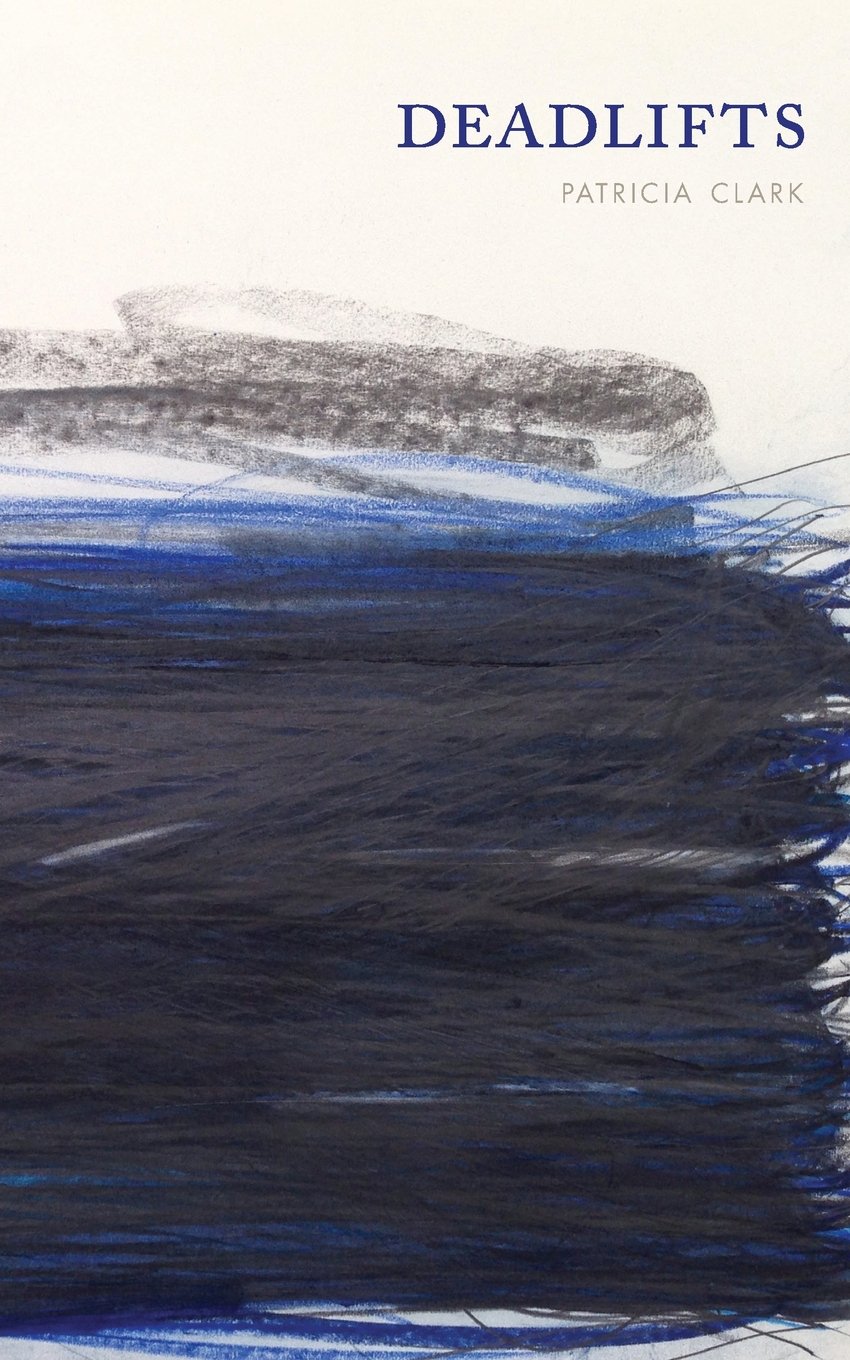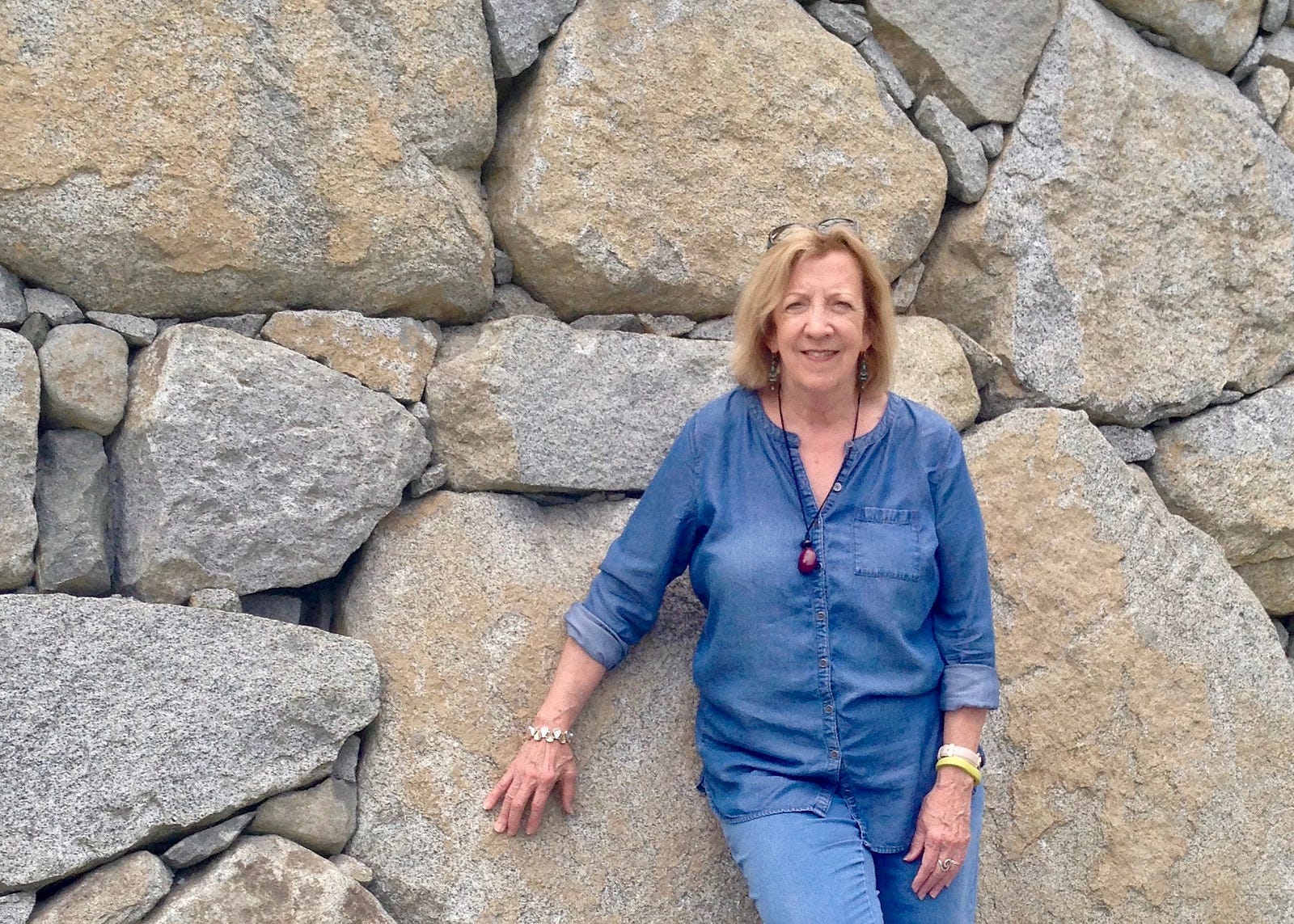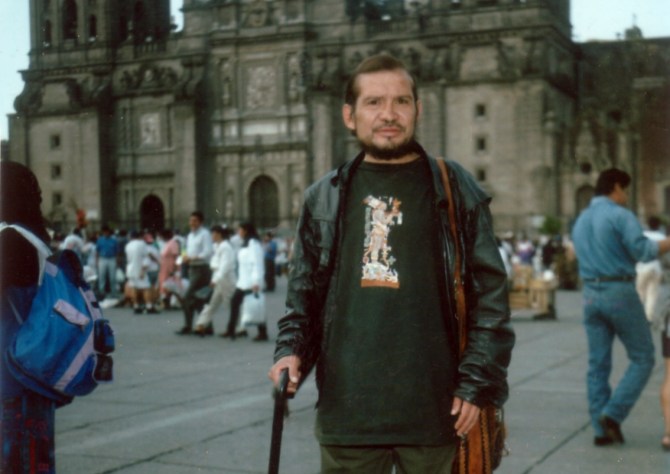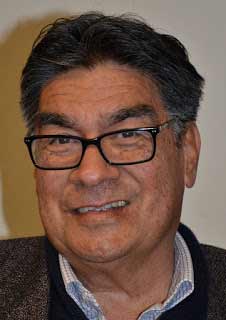Today's book of poetry:
Poetry Comes Out of My Mouth. Mario Santiago Papasquiaro. Translated by Arturo Mantecón,
Dialogos Books. New Orleans, Louisiana. 2018.
Today's book of poetry loves Mexico and today we love Mexico even more. Why? Because only Mexico could produce a Mario Santiago Papasquiro (1953-1998), born Jose Alfredo Zendejas, Papasquiro chose his name. Always rebelling, even against his own name.
Today's book of poetry was completely in the dark about Papasquiaro until
Poetry Comes Out of My Mouth and the excellent introduction to Papasquiaro by Ilan Stavans. There is much to know about the bohemian Papasquiaro and his partner in crime Roberto Bolaño, the founders of Infrarealism (also called Visceral Realism). This poetry is written in deliberate opposition to the mainstream of Mexican poetry in the 70's.
These poems sound like they were shot out of a cannon that you're standing next to, they are as electric as that eel biting your face.
Poetry Comes Out of My Mouth explodes like biting pus leaving an abscess and that immediate stanky relief that follows. Santiago is a full on fuselage of fireworks and it is fabulous.
Poetry Comes Out of my Mouth
For Roberto Bolaño, who I feel will become my Maharishi and is the founder of a movement
whose name I am unaware of & in which I pledge to fully realize myself
Poetry comes out of mouth,
it juts out from my nostrils / my penis
unexpectedly /
the shuddering
the resplendence /
& drool as well
& my hair now yanked out
by the sheer force of riding it
& pulling out of its deviations /
& dandruff / & the petrification
of so many of the herbs & roots
of this world / that before
taking a bite of them we are obliged
to spit...
Poetry comes out of my mouth,
from my clenched hands, from each resolute
pore of my skin /
from this volatile, random place /
testicularly located /
sharpening its dagger / its irritations
its manifest propensity to
explode / & light the fuse
in a refrigerator climate
in which it is neither GOOD or BAD
nor shaggy hanks nor keepsake locks of hair
nor even a head cold
that merits being called a cold
nor even one single case of Fever-Frever
worthy of being recorded as such in this
my motionless country
Poetry comes out of my mouth,
with an animal pelt & some antennae
& a few eyes of a fly /
With the warbles of a caged
canary / & the yawns
cacophonous yawns of the
zoo keeper /
Night & day / Red & Black
with the ovaries of a girl
with the hoarse voice a boy
with the hesitant gaze
but rabid / beautifully rabid
of a queer kid who doesn't
want to be hidden in a
bottomless barrel
Poetry comes out of my mouth
with the clean blackness of gasoline
with the eloquent brilliance of a 500-volt spotlight
with the excitement & the pride
of some biceps
masters of their world
(& within the relativity
of master Einstein):
The all-powerful ones
With the colors of a suit of clothes
made with fabric remnants /
with the confused sounds
chaotically harmonized
of hundreds & hundreds of disparate
car horns /
a day of bottleneck
on the beltway
Against gale winds & inundations
(& in a certain way a
favor to them)
against houses with closed doors
against worm-ridden suns
against cirrhosis far beyond
the liver /
against soft drink bottles
containing urea /
against boys & girls
castrated / frozen
on the day of their birth /
against the tons of
dirt & garbage
that fall on top of us,
when what one wants
is to show oneself to be happy & beautiful
as a palpable demonstration
of a new "rebirth"
Jumping & running with the
agile ones / putting a wax taper in
the asshole of the dimwits /
planning luncheons & soirees
with the bright ones /
getting immensely
enthused over the resolution
of the malfunctions / from Aries to Pisces
from Monday to Sunday /
from January to December
from the 1st to the 31st
from the worn-out board on the floor
to the spider web shimmying on
the roof /
of flatulence in flatulence
of the impression of a reactionary
upon meeting for the 1st time
a naked woman /
the last
Ah of "somebody
or other," when the 3rd World War
breaks out /
visiting the sick
greeting the healthy
conspiring underground
sabotaging above ground
holding back / advancing
hurrying your gulp
savoring it
gargling it
massaging yourself with it
injecting yourself with it
/ scratching, clawing
by the light of a midnight sun
like 2 lovers digging into each other
like 2 lovers expanding
out to their ultimate possibilities
the signifiers & the signified
of the Braille system
like a drunken binge of
sunflowers in circles / like a
diadem of dahlias the favorite
flower of Judith /
like a hit of marijuana
& you touch Nirvana with your hands
you move a finger, & you realize
you pull up grass & you smile /
flower pot worm / worm of red
earth that you did not know yourself/
Like a huge out of control psilocybin trip
that makes flour out of the rock
of your 4 walls /
& puts you on the prow of the comet Kohoutek
& leaves your sprees & revelry exposed,
your entire expanse
your abbreviation,
ready to be shaken off /
so as to not forsake the proper cholera
for the unjust dirty tricks /
but rather to enrich
but rather to strengthen
the fuse to the TNT,
to explode it
to make the pupil of your eye turn inward
Now he sings who wept
a short time ago
Shouts / Leaps / Mounts / Ejaculates ?
That So & So whom they had given up
for dead /
Now the hard ballads
soft cantatas / Bronx cheers
& the aftertaste for him who has spit out
the earth & the mucous
with which his eyes had sealed /
Poetry comes out of my mouth
in full gerundial coin
in full flow of potable water
in full viral luminosity
in full capacity of contagion
So it goes with poetry /
& for her
I have nothing but praises
💫💫💫
Born in Mexico City in 1953, Santiago lived in Paris, Vienna, Barcelona and Jerusalem between 1976 and 1978. He was chasing love, in love with a woman he couldn't have. Papasquiaro returned to Mexico City and died in 1998. He was a man dedicated to love as few men ever are.
Today's book of poetry had Delinquent Habits blasting out on the office box this morning as we tried our best to get in the proper mood to hammer out our morning read. Papasquiaro didn't just use Spanish but Mexican slang, Chilango—argot, words "from Nahuatl, the pre-Columbian language of Mexica, and several other indigenous nations."
Today's book of poetry couldn't keep up to the cultural and political references that spit up out of Papasquiaro's poems like water dropped on to a hot skillet.
Implacable Song
I shit on God
& on all of his dead
I shit on the communion host
& the virgin's little cunt
I shit on the dead
of the God of God
on the master morality of Friedrich Nietzsche
on the trembling body on my soul
& on the exposed nettles of the atheist
on the premature death of the righteous
on the fleeting nature of coitus & its flash
On the animal verb
On rhizome-like imagination
On the texts of fully weaned wisdom
On the ass crack of the planets
I shit
Concentrating on the wildfire of my pores
on this alcohol undergrowth that thrashes me
on the infinite eye of my footprints
on the savage fury of shameful chaos
on impossible death & its offerings
On the med of the asp that suns itself
on the rocks of the beloved
on the levitation of my skull & bones
on the lame heart of the unspeakable
On the aqueous aleph of my stigmata
on the vitreous rash of my assassin
on the hand of pleasure
on the drug wedged in his front teeth
On the philanthropic ogre & his wife
on the wretched grave of chance
on the germ of lyrical poetry / which is a turd
On the airborne horseshit
on the sleep sand in the eyes of moles
on the all-splendored cranium of Charleville
On the rats still fleeing from the Drunken Sea
on the soft
on the flabby
& on the defenseless
On the toads' belch of either
on boiling blood
on the shadows
on the pink phlegm of the daybreak
on the insensate glass I have chosen for a road
in the canyons of swollen Venus
On the banquet platter
in the little chamber pots of the ceasefire
on the rotten toadstool & its trident
On the genealogical tumor of the US Army
on the extensive lineage of shit
Abyss & resplendency / chance & wind
Open vein from coccyx to clavicle
Lateness of pregnancy
/ Flame of muffled harps
On groins without the armpits of God-inventorofthedead
on the suave & multiple murmur made by 2 teardrops
: on the sea : on its deserts :
& on myself
💫💫💫
Today's book of poetry marvelled at how easy it was to embrace Arturo Mantecón's translations and walk right into these panoramic poems. To be frank and honest, as we always try to be here, Today's book of poetry is now in love with Mario Santiago Papasquiaro, happy happy joy joy that we've found him. —— But stupid sad that we had never heard of him earlier.
When you open the pages of
Poetry Comes Out of My Mouth it is a little like the first time you hear Coltrane's "Giant Steps" or Bob Dylan's "All Along The Watchtower." You know you are in the presence of greatness. All you want to do is bask in it.
¡Oye! Mario Santiago Papasquiaro is a poet you didn't know you were waiting for.
William Shakespeare Arrives in Chilpancingo
William Shakespeare arrives in Chilpancingo
almost breaking his crown
in a small plane accident
A Jehovah's Witness (of the sleepwalking kind)
watches him on the sly
a federal security officer
shoots at him & does not hit him
William Shakespeare arrives (as he likes it)
his hip still hot & fragrant
his cranium invaded by flaming salamanders
fit together like pillows of rock & moss
William Shakespeare gets lost in Chilpancingo
—on the way from the cabaret to the gynecologist—
traveling now on tip-toe
now kissing the jaw of his anti-Lecumberri gradual progress
his blood-tunnel
his helicopter backbone
his most witch-like will
his caprice in flight
upon which he rides & lets our cries while fleeing
William Shakespeare / who seeded his flowerbed with black small pox in
Chilpancingo
excursion on the camino real
intoxication that we now savor as classic
William Shakespeare playing chess in Chilpancingo
💫💫💫
Today's book of poetry is gobstruck, our poetry world just got that much bigger in the best way possible. There isn't much of Mario Santiago Papasquiaro 's poetry that survived his death. We are lucky to have Poetry Comes Out of My Mouth.
On days like today I have the best job in the world. Today's book of poetry was honoured to write about Papasquiaro.
Mario Santiago Papasquiaro
(1954 - 1998)
ABOUT THE AUTHOR
Mario Santiago (1953-1998) was a poet errant, an incessant wanderer of the storied streets of Mexico City and an adventurous pursuer of love in Europe and the Middle East.
In his mid-twenties he met a young woman, Claudia Kerik, at a poetry workshop (attended, also, by Roberto Bolaño and other infra-realists) held in a cultural center in Chapultepec Park. Mario Santiago became infatuated with her. His love was not returned. When Kerik, who was Jewish, decided to emigrate to Israel in 1977, he followed her. He went to Paris and made his way to Jerusalem and worked on a nearby kibbutz to be near her. When he finally gave up his romantic pursuit, he made a slow retreat through Europe, writing poetry whenever he could. In Vienna, he was jailed for participating in a political demonstration and was expelled from Austria. He worked as a dishwasher in Barcelona and a fisherman and crop picker in the south of France, and he was a vagabond in Paris before finally going back to Mexico.
A rebellious man with a prickly personality and anti-social tendencies, he had difficulty holding down a job. He would burn off excess energy by taking long walks, at times for days on end but always coming home to the most important person in his life, his wife Rebeca López, the familial anchor who provided him the love and support necessary to his work. He was injured when hit by a car while on one of his interminable hikes. This did not deter him from taking his long meditative walks, but thereafter he had to use a cane.
After his accident, he became reckless and would cross busy streets with no regard for oncoming traffic, and on January 10, 1998, he was struck by a hit-and-run driver and killed.
After he had been missing several days, his wife called the police. She was directed to a morgue where she identified a corpse as her husband.
Arturo Mantecón
ABOUT THE TRANSLATOR
Arturo Mantecón is a poet, story writer and translator born in Laredo, Texas and raised in Detroit, Michigan. His poetry has appeared in La Ventana Abierta, Poetry Now and various anthologies. His short stories have been published in The Americas Review, Café Bellas Artes, Bliss, and The Dunes Review. A collection of his short stories,
Memories, Cuentos Verídicos, y Otras Outright Lies, was published by En Casa in 2014.
He has translated the poetry and prose of the mad Spanish poeta maldito, Leopoldo María Panero, in three collections:
My Naked Brain (Swan Scythe Press, 2011),
Like an eye in the hand of a beggar (Editions Michel Eyquem, 2013), and
Rosa Enferma / The Sick Rose (Swan Scythe Press, 2016).
He has also translated the prose and poetry of the uniquely erudite Spanish writer, champion poker player and ornithologist, Francisco Ferrer Lerín in a volume titled
Chance Encounters and Waking Dreams (Editions Michel Eyquem, 2016).
BLURBS
The poetry of legendary Mexican poet Mario Santiago Papasquiaro is little known in the USA. Closest friend of Roberto Bolaño (he is Ulises Lima in his Los Detectives Salvajes), Mario Santiago’s poetry flies in the most hallucinatory manner out of the tangled mass of Mexico’s heritage. Fusing the supernal and infernal energies of César Vallejo and Allen Ginsberg, this non-stop automatic-rifle poetry has few peers in contemporary poetry anywhere, and the meticulous translations of Arturo Mantecón superbly render this often difficult stylist into an English equally explosive and eloquent. With this potpourri of past and present, imagined and unimaginable visions, Santiago puts himself over the edge, racing as it were to his own destruction.
—Ivan Argüelles, author of
The Invention of Spain and
Madonna Septet
Mario Santiago writes not only with brilliance, but pays homage to his many influences—from the Beat poets to Artaud—whom he turns into his family in a theater of cultural references and, as a communist, makes them all part of his fundamental, historical rage for justice, love and transformation in an epoch steeped in drugs, lunacy and spontaneous righteousness. Arturo Mantecón’s majestic translations reveal Santiago’s mastery of lyricism and poetic drama. If you find yourself reading yourself when you read this book, don’t say I didn’t tell you so—that’s how great Santiago is.
—Jack Hirschmanm, author of
All That’s Left and
Front Lines
Every line of these poems pack little explosions of beauty, thought, rage, joy, that coalesce into a radiant blaze. I found myself bouncing in my chair as I read, carried by the language’s irresistible exuberance, and Arturo Mantecón’s on-fire translations. These poems make fresh a youthful spirit and language from a lost time. Mario Santiago still drives solemn pompous Mexican critics crazy; some are deeply annoyed that his friend and champion Roberto Bolaño’s fame have brought these poems new attention. I love the poems that take on some of Mexico’s sacred foundational myths, and far from merely subverting them, unexpectedly humanize these majestic figures and bring them so close, in poems that drum their honest, brilliantly jiving yet humble beat inside of you: “the children of my children will transmit my vision in their own way.”
—Francisco Goldman, author of
Say Her Name and
The Art of Political Murder
754
DISCLAIMERS
Poems cited here are assumed to be under copyright by the poet and/or publisher. They are shown here for publicity and review purposes. For any other kind of re-use of these poems, please contact the listed publishers for permission.
We here at TBOP are technically deficient and rely on our bashful Milo to fix everything. We received notice from Google that we were using "cookies"
and that for our readers in Europe there had to be notification of the use of those "cookies. Please be aware that TBOP may employ the use of some "cookies" (whatever they are) and you should take that into consideration.












